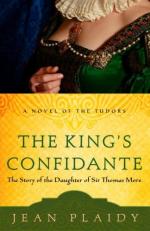|
This section contains 1,002 words (approx. 4 pages at 300 words per page) |

|
Thomas More (1478–1535) was born in London on February 7 and executed on Tower Hill, London on July 6. He was a lawyer and royal councilor who rose to be Lord Chancellor of England (1529–1532) before falling afoul of Henry VIII over the matter of the king's divorce. Of his voluminous writings, the only one that has anything to say about science and technology is Utopia (1516), his vastly influential Latin book about an imaginary island republic somewhere off South America.
To More and those of his fellow humanists who understood the Greek etymology, of the word that he coined for this title utopia meant simply noplace (ou + topos): the word, that is, did not originally have the meaning—an ideal society, or a fictional work about one—acquired in the book's aftermath. Indeed the fundamental interpretive question about the work is whether More intends Utopia as his ideal society. At...
|
This section contains 1,002 words (approx. 4 pages at 300 words per page) |

|


